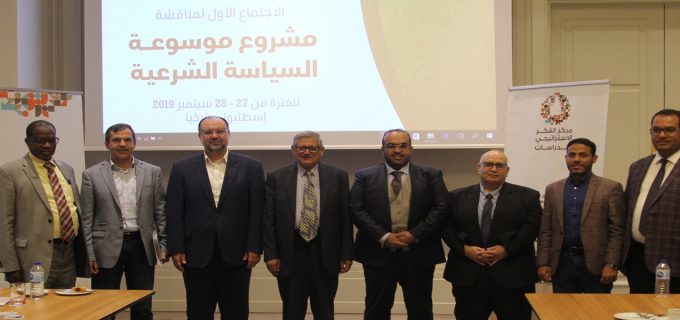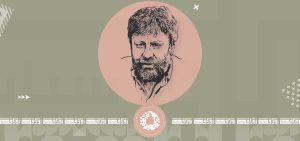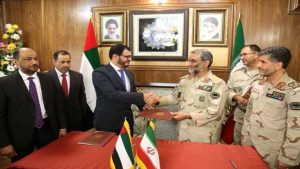Within the framework of its various activities to discuss the project (Encyclopedia of Political Jurisprudence in Islamic Heritage), Strategic Fiker Center Studies held a workshop in the Turkish city of Istanbul, on Friday, September 27, 2019, which included a discussion of the idea of the project, its importance, its methodology, its temporal, spatial and objective limits, and the steps to work in it. Where the participants expressed their admiration for the idea, and their willingness to develop it and contribute to the development of the methodological mechanisms necessary for its success.
In the session, an initial agreement was reached on the name of the project, its time limits, and the general methodological framework provided that the project’s mechanisms and methodology will be developed in future meetings.
It is worth noting that Strategic Fiker Center Studies aims, through the Encyclopedia of Political Jurisprudence in Islamic Heritage, to contribute to the modernization of the Islamic political heritage, open horizons for its development, and link it to contemporary generations and contemporary issues, trying to integrate Islamic political thought into political thought and philosophy and to draw attention to what it produced. The Islamic mind in the previous period and the possibility of benefiting from it at the present time. This project also aims to present the Islamic political heritage of the nation collected in one encyclopedia, according to an objective arrangement and classification according to contemporary politics, so that it is easy to access and benefit from it academically and practically.
A group of thinkers and specialists in political and forensic sciences from a number of Arab countries participated in this workshop, led by Dr. Al-Tijani Abdel Qader, Professor of Political Thought and Islamic Studies at Qatar University; Dr. Muhammed Jabroun, a professor specializing in issues of history and Islamic political thought; Dr. Hamid Qweissi, Professor of Political Science at the University of London; Dr. Abd al-Rahman al-Kilani, Dean of the Faculty of Sharia at the University of Jordan and former President of the Association of Jordan Scholars; and Dr. Abdul Majeed Al-Najjar, member of the Board of Trustees and member of the Executive Office of the International Union of Muslim Scholars.







